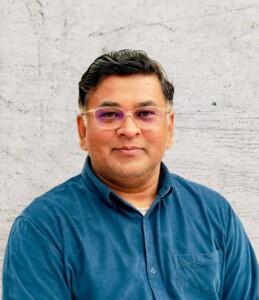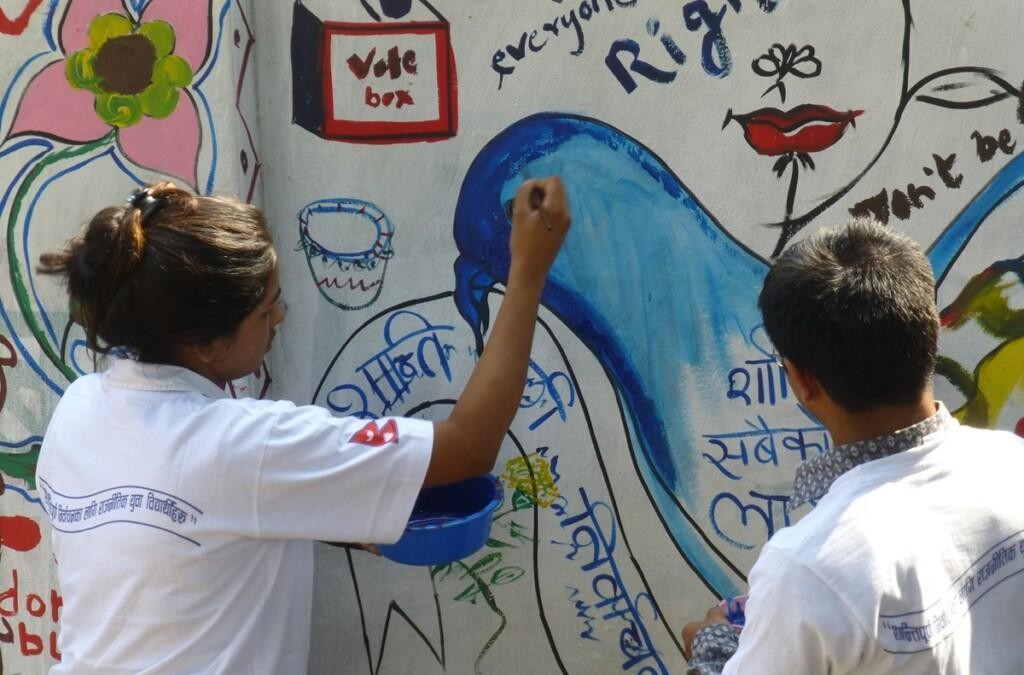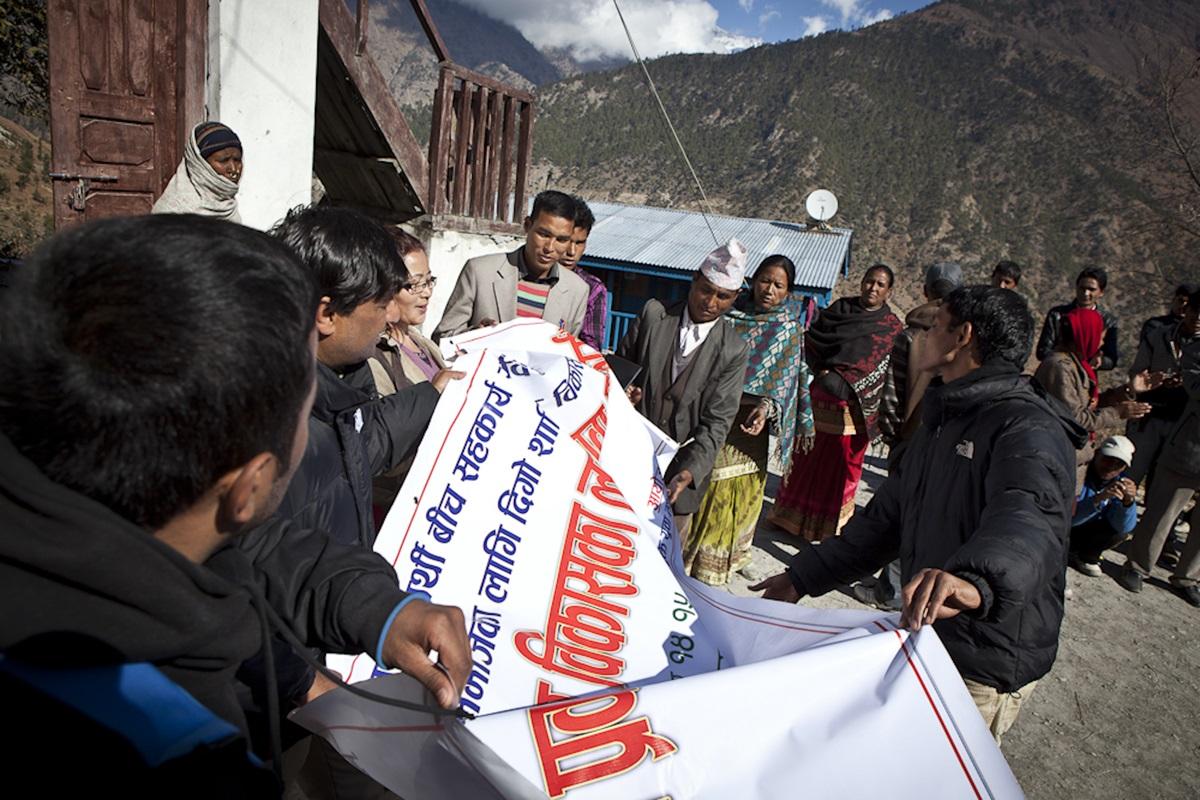“I will always be proud that we created a transparent and accountable forum where everyone could come together, not just to agree, but also to disagree peacefully and respectfully”, says Rakesh Karna, former Country Director of Demo Finland’s programme in Nepal that ended in 2015.
Launched in 2007 as Demo Finland’s second project, the Nepal programme began with preparatory work the previous year. A working group of youth and student organisations from Finnish political parties played a key role. The programme aimed to support multi-party co-operation among young people and train youth politicians across Nepal, leading to the formation of the Joint Youth and Student Platform (JYSP) in 2007.
The co-operation was initiated at the request of Nepalese political youth and student organisations shortly after the end of the country’s civil war. Because of the difficult post-conflict context, the Nepalese youth wanted an external facilitator to ensure a neutral space for dialogue. Unlike in other international programmes, Demo Finland had a country office in Nepal, led by a non-Nepalese Country Director until Rakesh Karna took over as Country Director in 2014, after the co-operation had lasted for seven years.

“The political youth and student organisations did not have very friendly relationships after the civil war”, Karna recounts. “Some of them were from the mainstream political parties, whereas some just came out of the war. And then we had some regional political forces who were just about to learn how to be active in this political space.”
Karna remembers that there was a big debate about whether these youth groups would really embrace the peaceful means of political participation because there were serious clashes between and amongst them. “It was quite intense, I would say, to bring these different factions and ideological groups of people together.”
Bringing the voice of young people into politics
Karna notes that there may have been some discussion between political youth and student organisations after the civil war, but no established, deliberate forum to bring them together. “Right after the peace process, everyone just jumped in to deal with the leaders, and often the leaders are not the youth. I think the voices of youth were ignored, and so was their participation.”
Before Demo Finland’s programme, the role of youth in Nepali politics was mainly to mobilise protests rather than to channel young people’s views into politics. Through the youth platform facilitated by Demo Finland, young people’s perspectives were shaped into policies. In 2009, the JYSP produced a joint youth policy, which was the result of an extensive process involving also non-politically active young people.
The programme also strengthened the capacity of young people to engage in politics. Demo Finland and JYSP trainings reached hundreds of young people every year. Over the years, many of the youth politicians who were active in the programme rose to prominent positions, from members of the Constituent Assembly to ministers. Many of the former participants are now members of parliament at the provincial or federal level or serve in various other roles within their parties.
Through the youth platform facilitated by Demo Finland, young people’s perspectives were shaped into policies.
Karna recounts that gender equality was included in the programme. “Women’s participation was a cross-cutting issue for us: How can young women feel encouraged to participate in political activities? How can these youth and student wings provide a safer space or encourage a space for women in their political parties?” In 2013–2015, Demo Finland supported young women’s political participation in Nepal also through a separate EU-funded project.
Creating a culture of co-operation
According to Karna, the activities of the youth platform concentrated on first negotiating together on the issues to be discussed and an agenda that would benefit everyone. Then activities were planned, which could be, for example, a joint peace campaign, painting of a mural or political dialogue on youth issues.
“The purpose behind those activities was not just doing things but basically trying to provide them a safe space where they can come together and forget their individual or specific differences and try to find ways to work on a common agenda”, says Karna. “It looked like activities, but it was about establishing a culture of coexistence.”

The youth also worked together across party lines after a massive earthquake hit Nepal in spring 2015. “They left their differences behind and were the youth force to go to the affected areas. These different youth and student wings came together and made an impartial form of rescue and relief, together with the government.”
Facilitating dialogue was not always easy. Tensions arose due to differences in party status, size, and participants’ social or ethnic backgrounds. “In this forum, no matter which background you belonged to, we all were equal”, says Karna.
“It looked like activities, but it was about establishing a culture of coexistence.”
Over the years, participants of the JYSP also had the opportunity to share experiences with young politicians from other countries. Study visits were organised to Sri Lanka, Finland and Slovenia, and Karna recalls that those were highly appreciated by the participants and that they learnt a lot. For example, the visit to the Finnish Parliament increased the understanding of the participants of the role of thematic committees and the consultation of various experts in legislative work. It was also an eye-opening experience for many of the participants to discover that young people have a lot of common issues, no matter if they are from European countries or from Nepal.
Political dialogue and co-operation continue
Although Demo Finland’s programme in Nepal ended 10 years ago and the youth platform is no longer active, Karna sees the programme still having a positive impact on Nepalese politics. “There have been very few instances of violent interaction or clashes. There is some confrontation, but not as bloody and violent as it used to be right after the peace agreement was signed in 2007. Many of the former youth politicians have now become adults and they are in mainstream politics. I’m sure they carry with them the culture of peaceful agreement and disagreement. We have debate and dialogue, agreement and disagreement, but far fewer physical assaults or casualties.”
“People accept each other despite different political ideologies.”
The culture of dialogue still continues in Nepali politics, and although Demo Finland did not create it alone, Karna believes that the programme contributed to it. The country now has a tradition of coalition politics, with changes in the coalitions. “It can be very confusing to people, and that’s not good for democracy that you don’t have a clear opposition party as a watchdog of the ruling faction. However, the positive side is a culture of coalition, where people accept each other despite different political ideologies. I think Nepal is a good example of how to work together despite differences.”
This is especially significant in a country that emerged from civil war less than 20 years ago.
Karna views multi-party co-operation as fundamental to humanity: “This is how the universe, the world, nature and Earth are created. We can’t live with just air, fire or water alone, we need all these elements to survive. Working together is the only way to survive and thrive. It’s the foundation of humanity and our existence.”
—
This article is part of the “20 Years of Demo Finland” series of stories about Demo Finland’s long-term or completed projects and their results. Read more about the anniversary year here.

